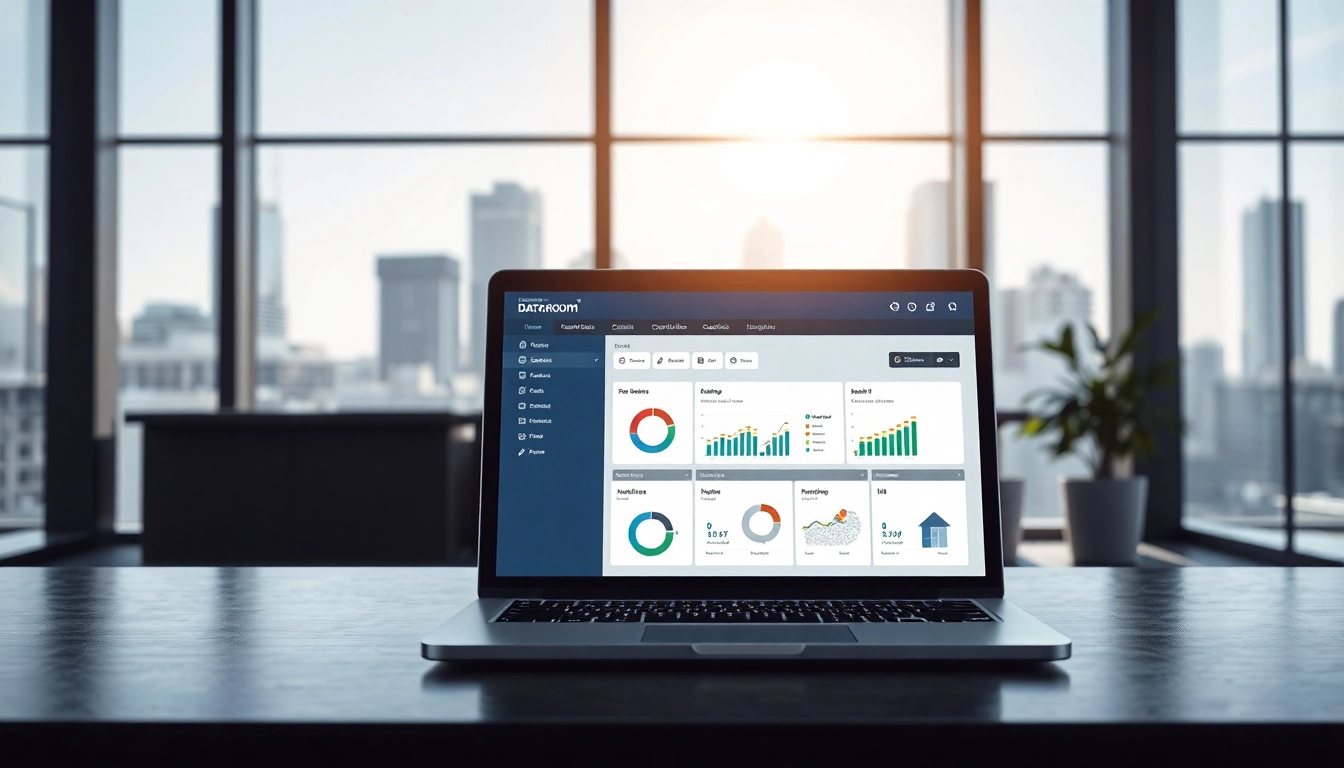
Understanding Debt Collection Outsourcing
What is Debt Collection Outsourcing?
Debt collection outsourcing refers to the practice where businesses engage third-party agencies to handle their debt recovery processes. This approach can streamline collection efforts, allowing companies to focus on their core operations while leveraging the expertise of specialists in the field. Essentially, a dedicated service provider assumes the responsibility of collecting outstanding debts, ensuring that these efforts are handled efficiently and professionally. By opting for Debt Collection Outsourcing, businesses can transform a traditionally arduous process into a more manageable aspect of their financial health.
Common Misconceptions About Debt Collection Outsourcing
Despite its advantages, debt collection outsourcing is often misunderstood. Some common misconceptions include:
- Outsourcing harms customer relationships: Many fear that outsourcing will create a disconnect with customers; however, skilled agencies excel in maintaining a balance between debt recovery and customer service.
- High costs: Although there is an upfront cost, outsourcing can lead to overall savings by optimizing collection processes and reducing internal labor costs.
- Only for big businesses: Small to medium-sized enterprises can also benefit significantly from outsourcing as it allows them to harness expertise without the need for large-scale resources.
Why Businesses Consider Debt Collection Outsourcing
Businesses often consider debt collection outsourcing for various strategic reasons:
- Resource Allocation: Companies can redirect internal resources towards more strategic initiatives instead of dedicating them to debt collection.
- Expertise: Specialized agencies have expertise in compliance, regulations, and effective recovery strategies that may be beyond the in-house team’s capabilities.
- Scalability: Outsourced services can scale with the business, accommodating seasonal fluctuations and varying debt volumes efficiently.
The Benefits of Debt Collection Outsourcing
Cost Savings and Efficiency
One of the most compelling reasons for outsourcing debt collection is the potential for substantial cost savings. Here’s how:
- Reduction in Operational Expenses: By outsourcing, businesses avoid the expense of hiring and training in-house employees, as well as incurring costs related to technology and compliance.
- Improved Recovery Rates: Specialized agencies often employ advanced technology and strategies to recover debts effectively, translating into higher return rates for businesses.
- Economies of Scale: Outsourcing companies can spread their costs over many clients, allowing them to offer competitive pricing and services that would be expensive for individual businesses to replicate.
Expertise in Debt Recovery
Debt collection firms possess specialized knowledge in areas that are crucial to effective collections:
- Legal Knowledge: They are well-versed in the Fair Debt Collection Practices Act (FDCPA) and other relevant regulations, minimizing the risk of legal issues for the business.
- Targeted Approaches: These agencies utilize data-driven strategies to tailor their approach to different demographics and debt types, ensuring more effective communications.
- Technology Proficiency: Many outsourced services employ state-of-the-art technology that can automate and streamline processes, thereby improving collection efficiencies.
Improving Customer Relationships
One might assume that outsourcing debt collection could damage customer relationships. However, properly managed outsourcing can enhance them:
- Professional Communication: Trained collectors are adept at managing customer interactions sensitively and courteously, fostering a positive experience even in difficult circumstances.
- Flexibility in Collection Strategies: Outsourced agencies can offer flexible payment plans tailored to individual customer circumstances, enhancing customer satisfaction and increasing chances of recovery.
- Preserving Brand Reputation: By maintaining professionalism and compliance during the collection process, businesses can protect their brand image and ensure customer loyalty.
Evaluating Debt Collection Outsourcing Providers
Key Factors to Consider
When selecting a debt collection agency, businesses should evaluate several critical factors to ensure the right fit:
- Reputation and Experience: A provider with a solid reputation and extensive experience in the industry is essential. Look for client reviews and case studies that reflect their success.
- Range of Services: Determine if the agency offers a comprehensive suite of services that align with your specific needs, such as skip tracing and customized strategies.
- Compliance Standards: Ensure the provider adheres to all regulatory requirements to protect your business from potential legal ramifications.
Questions to Ask Potential Providers
Asking the right questions can help you assess whether a debt collection agency meets your business needs:
- What is your collection success rate?
- Can you provide references from clients similar to my business?
- What technologies do you use to enhance collection efforts?
- What is your approach to compliance with debt collection laws?
- How do you measure success and performance in debt collections?
Assessing Compliance and Standards
It is vital to ensure that any debt collection agency operates within legal frameworks and adheres to the highest standards:
- Regulatory Compliance: Verify that they comply with national and state regulations governing debt collection practices.
- Industry Certifications: Look for certifications such as ISO or ACA certifications that reflect adherence to quality standards.
- Data Protection: Ensure that the agency has robust data security measures to protect sensitive customer information.
Implementation Strategies for Debt Collection Outsourcing
Creating a Smooth Transition Plan
To ensure a successful partnership with a debt collection agency, organizations should develop a comprehensive transition plan:
- Assessment of Current Processes: Evaluate existing collections processes and identify areas that require improvement before transitioning to an external agency.
- Clear Communication: Maintain open lines of communication within your team and with the outsourced agency to facilitate a seamless transition.
- Documentation: Provide precise documentation detailing customer accounts, communication history, and payment plans to the agency.
Training Staff on New Processes
After implementing outsourcing, it’s crucial to train internal staff on new processes:
- Educational Programs: Conduct workshops to educate staff on how to work effectively with the outsourced agency.
- Regular Updates: Keep staff informed about new policies and procedures as the partnership evolves.
- Feedback Mechanism: Create avenues for staff to provide feedback on the outsourcing relationship and address any emerging challenges.
Setting Performance Metrics and KPIs
Establishing clear performance metrics will help both parties assess the success of the debt collection efforts:
- Recovery Rate: Track the percentage of outstanding debts collected within a specific timeframe.
- Customer Satisfaction Scores: Monitor feedback from customers regarding their experience with the collection agency.
- Compliance Metrics: Regular audits of compliance with laws and regulations can ensure the agency maintains high standards.
Challenges in Debt Collection Outsourcing and Solutions
Common Challenges Faced by Businesses
While outsourcing debt collection offers numerous benefits, challenges may arise, including:
- Lack of Control: Businesses may feel they lose control over the collections process once they outsource it.
- Misaligned Objectives: Differences in goals and priorities between the business and agency can lead to conflicts.
- Reputation Risks: Poorly managed collections practices can harm a business’s reputation in the market.
Strategies to Mitigate Risks
To address these challenges, businesses can employ several strategies:
- Regular Communication: Establish a regular check-in schedule to discuss progress, objectives, and any issues that arise.
- Clear Contracts: Ensure that contracts clearly outline the expectations, processes, and performance metrics to align both parties’ goals.
- Client-Centric Approaches: Work collaboratively with the agency to develop customer-centric collection strategies that enhance relationships.
Future Trends in Debt Collection Outsourcing
The debt collection landscape is evolving, and several trends are shaping its future:
- Technological Integration: Increasing use of artificial intelligence and automation tools to enhance debt recovery processes.
- Data Analytics: Incorporating advanced analytics to gain deeper insights into customer behaviors and prioritize collections efforts.
- Focus on Customer Experience: A growing trend towards employing strategies that prioritize positive customer interactions during the recovery process.






